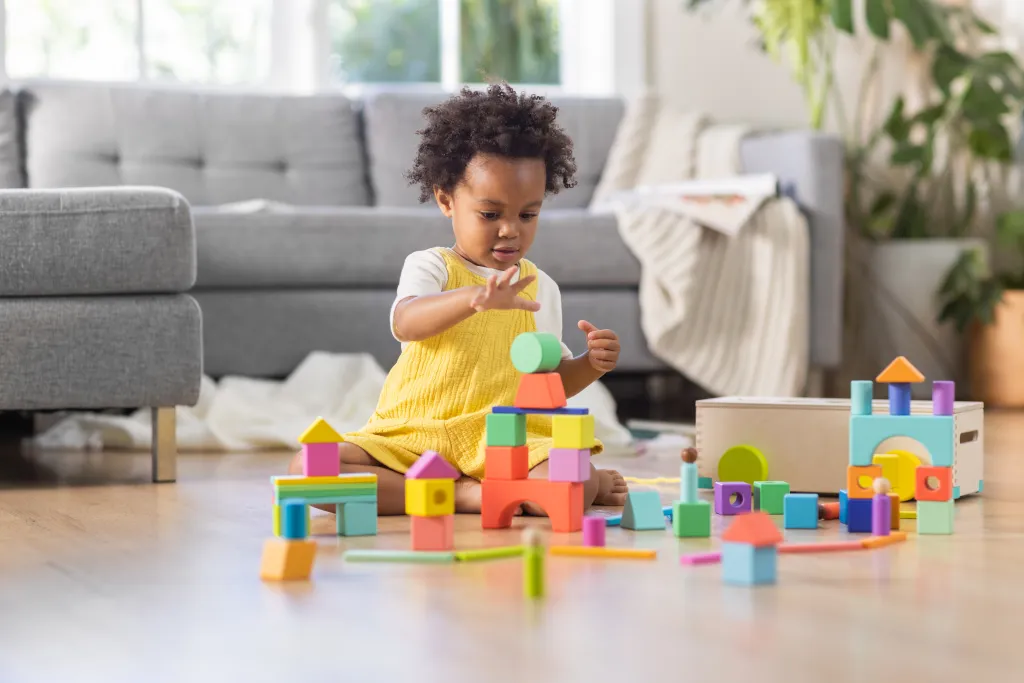Toys are more than just objects for play; they can serve as powerful tools for a child’s development. Among the various types of toys available, developmental toys play a special role in fostering learning and skill-building in children. These toys are designed with specific educational goals in mind, aiming to enhance cognitive, physical, social, and emotional development. Let’s delve into the fascinating world of developmental toys and explore their ten key educational benefits.
Promoting Cognitive Skills
Developmental toys often stimulate cognitive abilities such as problem-solving, memory, and attention. Puzzle toys, for instance, encourage logical thinking and spatial awareness, while building blocks enhance creativity and understanding of shapes and structures.
Enhancing Motor Skills
Toys involving physical activity, like building sets or outdoor play equipment, contribute to developing fine and gross motor skills. Manipulating small parts or engaging in physical play helps children refine their hand-eye coordination and muscle control.
Encouraging Language Development
Toys incorporating language-rich activities, such as books, interactive games, or musical instruments, aid in language acquisition and vocabulary expansion. These toys provide opportunities for children to express themselves and engage in meaningful conversations.
Fostering Social Skills
Many developmental toys are designed for cooperative play, encouraging children to interact, share, and collaborate. Board games, team-building sets, and pretend play toys promote social skills like turn-taking, negotiation, and empathy.
Cultivating Emotional Intelligence
Certain toys, like dolls or emotion cards, help children recognize and manage their emotions. Children learn to empathize with others’ feelings by role-playing with toys and develop a deeper understanding of emotional expression.
Boosting Problem-Solving Abilities
Developmental toys often present challenges that require problem-solving skills. Construction sets, science kits, and strategy games prompt children to think critically and find creative solutions to overcome obstacles.
Stimulating Imagination and Creativity
Toys encouraging open-ended play, such as art supplies, dress-up costumes, or building blocks, inspire imagination and creativity. These toys allow children to explore their interests and express themselves freely.
Building Resilience
Toys that involve trial and error, such as building sets or complex puzzles, teach children perseverance and resilience. Overcoming difficulties during playtime fosters a positive attitude towards challenges.
Cultural Awareness
Certain toys introduce children to different cultures, traditions, and lifestyles, fostering a sense of diversity and cultural appreciation. This exposure promotes tolerance and broadens a child’s worldview.
Preparation for Academic Success
Engaging with developmental toys prepares children for academic learning by laying a strong foundation in key areas such as literacy, numeracy, and scientific thinking. These toys make learning enjoyable and set the stage for future academic pursuits.
Now, let’s delve deeper into each of these educational benefits to understand their significance in child development.
The Importance of Developmental Toys in Early Learning Cognitive Development
Developmental toys are designed to stimulate various aspects of cognitive development, including problem-solving, critical thinking, and memory retention. Toys such as shape sorters, puzzles, and matching games challenge children to use their reasoning skills to complete tasks. These activities enhance cognitive flexibility and adaptability, which are crucial for learning and adapting to new situations later in life.
Motor Skill Development
Toys that require physical manipulation, such as building blocks, playdough, and ride-on toys, aid in the development of both fine and gross motor skills. Fine motor skills involve precise movements of the hands and fingers, while gross motor skills involve larger movements of the arms, legs, and body. Developmental toys that target motor skills contribute to improved coordination, dexterity, and muscle strength.
Language Acquisition
Language-rich toys play a vital role in language development by exposing children to new words, sounds, and expressions. Books, storytelling puppets, and educational games encourage language exploration and help build vocabulary. Children learn to communicate effectively, express their thoughts, and comprehend language nuances through interaction with these toys.
Social Interaction and Communication
Developmental toys facilitate social interaction and cooperative play, which is essential for the development of social skills such as sharing, taking turns, and resolving conflicts. Toys that encourage group activities, such as board games and role-playing sets, teach children valuable lessons in collaboration, empathy, and teamwork. These experiences lay the groundwork for healthy social relationships in childhood and beyond.
Emotional Regulation
Toys that explore emotions and feelings provide children with a safe space to understand and manage their emotions. Dolls, puppets, and emotion-themed games help children identify different emotions and develop empathy toward others. Children learn to navigate complex emotions and express themselves more confidently by engaging in imaginative play scenarios.
Creative Expression
Developmental toys fuel creativity and imagination by offering opportunities for self-expression and exploration. Art supplies, musical instruments, and construction kits allow children to unleash their creativity without constraints. Engaging in imaginative play teaches children to think outside the box, solve problems creatively, and develop a sense of innovation.
Persistence and Resilience
Toys that present challenges requiring repeated attempts to succeed, such as building kits and science experiments, teach children the value of persistence and resilience. Overcoming obstacles during playtime instills a growth mindset, encouraging children to view setbacks as opportunities for learning and growth.
Cultural and Global Awareness
Toys that introduce children to diverse cultures, traditions, and languages broaden their perspectives and promote cultural appreciation. By exploring world-themed toys and games, children develop a sense of curiosity about the world around them and cultivate respect for different ways of life.
Academic Readiness
Engaging with educational toys lays a strong foundation for academic success by fostering essential skills such as literacy, numeracy, and scientific inquiry. Early exposure to letters, numbers, and basic scientific concepts through play enhances children’s readiness for formal education and lifelong learning.
In Summary
Developmental toys play a crucial role in nurturing a child’s overall development, from cognitive and motor skills to social and emotional intelligence. Parents and educators can create enriching learning experiences that support holistic growth by incorporating these toys into children’s playtime. The educational benefits of developmental toys extend far beyond the joy of play; they empower children to explore, discover, and thrive in a world of endless possibilities. So, next time you choose a toy for a child, consider the transformative impact that developmental toys can have on their educational journey and lifelong development.
Don’t miss out on updates and alerts – stay connected! Gossips




